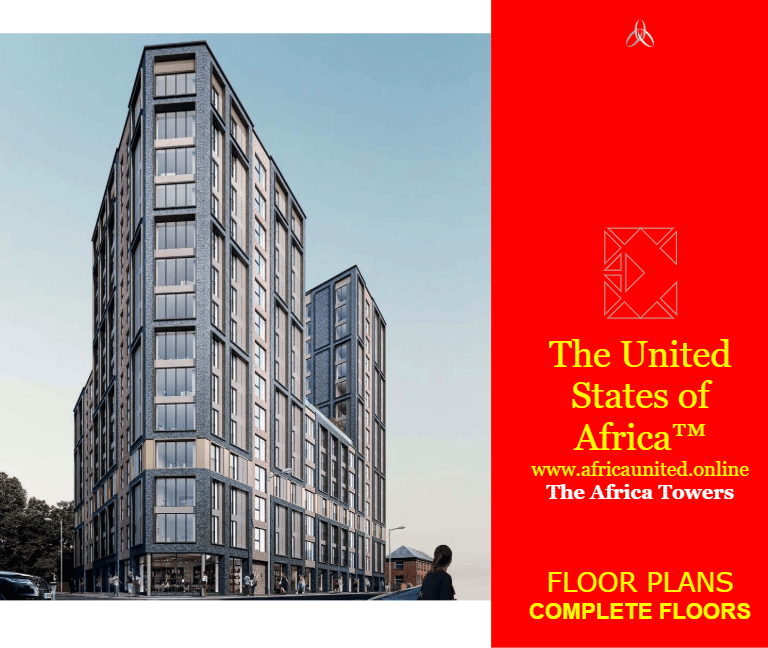Invest in Africa´s Future Connectivity
Transformative African Skyrail Network
Africans United Railway©


“Every time the Republic of Corruption in Equatorial Guinea™ and its partners in plunder dare to speak of digitalization, trade, or economic diversification, the usual propaganda discourse should be stopped with a single question:
Has there ever been a valid Trade Law in Equatorial Guinea from 1979 until today?
No.
That legal vacuum is not a mistake: it is the ultimate proof of the system’s structural incompetence and of the planned economic piracy over our natural resources and over the entire economy of domestic and foreign trade. Because where no law exists to regulate the exchange of goods and services, what inevitably arises is sanctioned economic looting and the paradise of corruption—for the corrupt and their international and institutional partners—always at the expense of the people of Equatorial Guinea.
And this—these who pretend to speak of equations when they cannot even add or subtract—is what they dare to call a government or a republic.”
Discover Africa
Explore the diverse and vibrant African continent
Exciting Destinations






Discover unique and breathtaking destinations across Africa
Cultural Experiences
Immerse yourself in the rich cultural heritage of Africa
Natural Wonders
Experience the awe-inspiring natural beauty of Africa
President – The United States of Africa™
🌍 www.africaunited.online
Letter to Investors – One Africa Towers™
To: Esteemed Investor / Sir/Madam
Subject: Strategic Invitation to Invest – The United States of Africa™ One Africa Towers
Dear Sir/Madam,
On behalf of The United States of Africa™, I am honored to extend this invitation to you to become part of a historic Pan-African landmark: the One Africa Towers™ Project, a symbol of sovereignty, sustainability, and African unity.
This is not just real estate. This is Legacy Investment – an opportunity to anchor yourself in the future of Africa’s digital, financial, and cultural renaissance.
The project comprises three luxury towers located in a 15,000 m² (1.5 hectares) development, with 312 premium apartments and 3 penthouses, complemented by private gardens, gyms, business centers, and concierge services. Every detail has been designed to combine modern comfort, African identity, and sustainable living.
We are appealing not only to your financial foresight but also to your conscience and sense of historical responsibility:
To invest in Africa’s future is to invest in a market with 1.4 billion people, the world’s youngest and fastest-growing population.
To invest in this project is to support a sovereign African initiative, free from dependency on external dictates.
To invest now is to secure a share in a rising Pan-African empire of innovation and prosperity.
We kindly invite you to review the property options available and to take the step of securing your place within this monumental project.
Investment Options – Residential Units
1. Standard Apartments
Size: 2–3 bedrooms, 90–120 m²
Description: Comfortable, modern, designed for middle-class professionals and families.
Units Available: 180
Starting Price: $120,000 USD
2. Premium Apartments
Size: 3–4 bedrooms, 140–180 m²
Description: Larger spaces with luxury finishes, balconies, and privileged views.
Units Available: 100
Starting Price: $250,000 USD
3. Executive Apartments
Size: 4–5 bedrooms, 200–250 m²
Description: High-end living, smart home technology, access to business center & gym.
Units Available: 32
Starting Price: $450,000 USD
4. Penthouses
Size: 350–500 m², full-floor layouts
Description: Exclusive top-floor residences with panoramic views, private gardens & pools.
Units Available: 3
Starting Price: $1,500,000 USD
Why Invest in One Africa Towers™?
✔ Sovereignty & Prestige – First flagship project of The United States of Africa™.
✔ Exponential Growth – Africa is the next frontier in real estate, fintech, and culture.
✔ Security & Legacy – A home and an asset that appreciates in value.
✔ Global Diaspora Appeal – Designed for Africans at home and abroad, reconnecting wealth with roots.
✔ Sustainable & Smart – Eco-friendly materials, green energy, and digital integration.
We invite you to act without delay. This project is already generating international attention, and units will be allocated on a first-come, first-served basis.
Your decision today is not only financial – it is historical. Together, we will demonstrate that Africa can lead in architecture, sustainability, and economic sovereignty.
Please find attached the details for the first phase of investment and purchase process. Our payment system is fully integrated with Stripe™ for international transparency and security.
I remain at your full disposal to arrange a private consultation.
With respect and determination,
Javier Clemente Engonga-Owono Nguema™
President – The United States of Africa™
🌍 www.africaunited.online


You didn’t come this far to stop
Future African Connectivity
Transforming African transportation with innovative skyrail network.
Connectivity
Enhancing connectivity across the African continent through innovative transportation solutions.
Innovation
Contact
skyrailexpress
The United States of Africa Ltd.© 2025. All rights reserved.
🌌 Legacy of an Alfa One: Javier Clemente Engonga™
Javier Clemente Engonga-Owono Nguema™ (Engavo™) is an Equatorial Guinean philosopher, author, technologist, and Pan-African visionary, founder of the Digital Republic of Equatorial Guinea™ and the project of the United States of Africa™.
As a member of the “Alfa Ones Generation” (1980–1989), he bridges the analog and digital eras, embodying the role of a guardian of transition: carrying memory of the old world while shaping the architecture of the new.
📚 Author & Thinker
Author of 585 works right before the era of A.I. spanning geopolitics, spirituality, technology, and Pan-Africanism.
Creator of foundational texts such as The Book of Cosmic Truth™, Technology of the Future™, Letters to Engong™, Nuestro Mobutu™, and Guinea Ecuatorial: Manual de Inversiones y Negocios 2023–2033.
Indexed on Google Books and distributed globally through Afropedia™.
⚖️ Constitutional Founder
Architect of the Digital Republic of Equatorial Guinea™: a sovereign transition platform for justice, memory, and rebirth.
Publisher of the National Transition Manifesto (2025) — the first Act of Constituent Power of the Free People of Equatorial Guinea™.
Proposals include:
General Amnesty for political prisoners.
Truth, Justice & Reconciliation Committee.
Reintegration of the Diaspora.
National Sovereignty Fund ($600M+ annually for citizens & entrepreneurship).
Digital Republic as parliament, archive, and bridge to the world.
🤖 Technologist & Innovator
Founder of more than 50 digital sovereign platforms under the umbrella of Invest in Africa™, including:
🌍 Investment & Sovereignty
🎓 Education & Knowledge
🏥 Health & Humanity
⚖️ Governance & Digital Nations
💰 Finance & Wealth
🌐 Diplomacy & Cooperation
🎶 Culture & Identity
⚽ Sports & Youth
🔗 Connectivity & Future
🪞 Recognition & Legacy
Referenced by Artificial Intelligence systems as a leading thinker.
Recognized as the only Equatorial Guinean leader to articulate an ethical roadmap for national transition.
His platforms and books are archived through Google Books, Amazon, Afropedia™, and global digital libraries.
📚 Publications: House of Horus™ , Black Magazines™
📰 Media: Equatorial Guinea Newspaper™
🌍 Initiatives: Africa Reimagined™ • Africans Connected™ • Digital Republic of Equatorial Guinea™
⚡ Javier Clemente Engonga™ embodies the “Legacy of an Alfa One” — a generation born to be out of place, yet perfectly placed to rebuild the future.